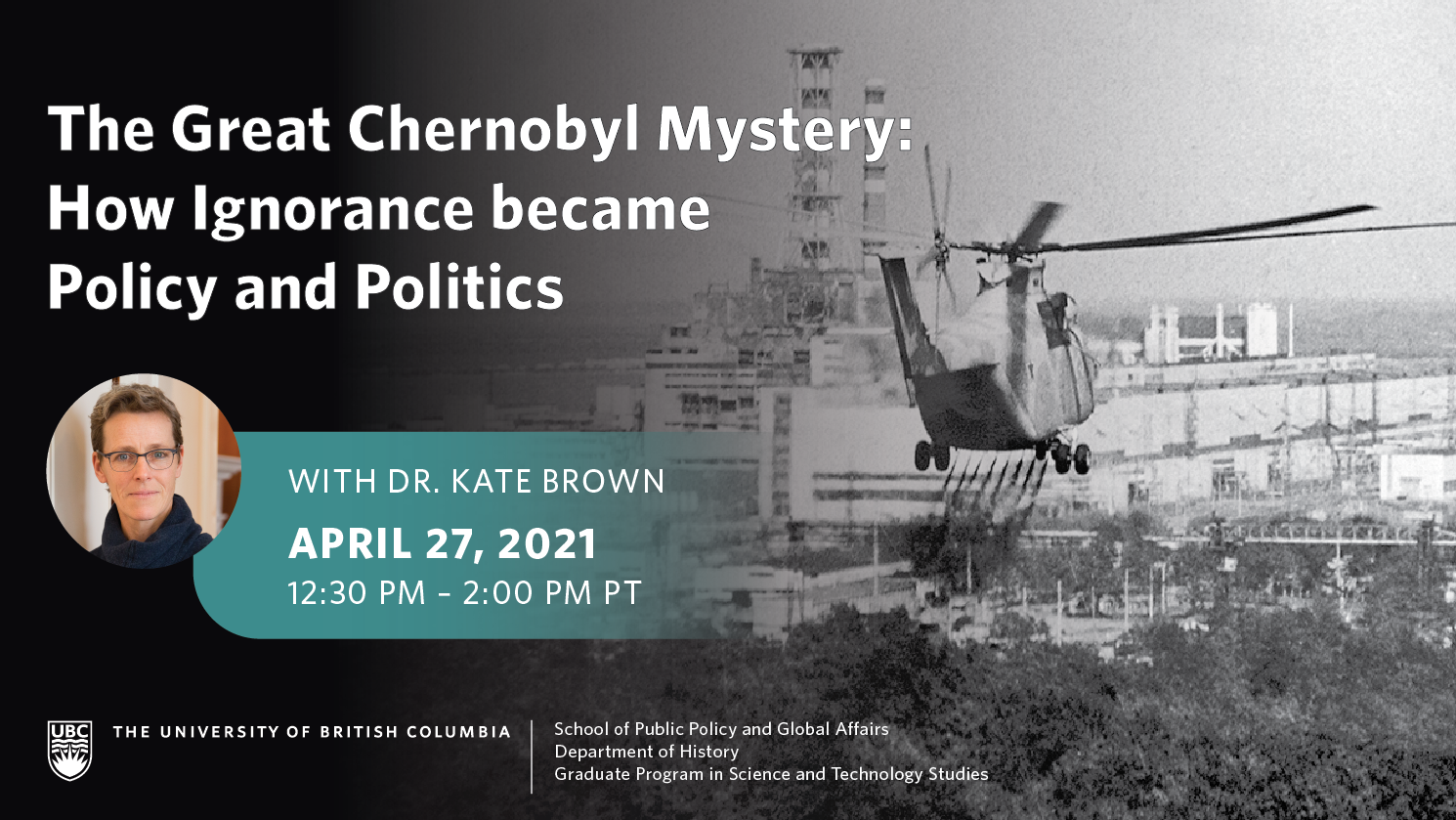

Join us for this seminar with historian Kate Brown on the Chernobyl nuclear disaster, marking its 35th anniversary.
Please register in advance. The Zoom details will be emailed you to prior to the event.
U.N. websites say that 33 people died from the 1986 Chernobyl catastrophe and 6,000 children got cancer. Is that the extent of the damage? Working through newly disclosed Soviet health archives, historian Kate Brown discovered that Soviet doctors reported a public health disaster in the Chernobyl-contaminated territories in the late 1980s. The archives shows a death toll of not 35, but 35,000 and tens of thousands hospitalized after the disaster. What happened to this story? Brown explores international archives to show how evidence of widespread health problems from Chernobyl exposures disappeared from the scientific consensus.
Speaker: Kate Brown, Professor of Science, Technology and Society, Massachusetts Institute of Technology
Welcome remarks: Jessika Woroniak, Master of Public Policy and Global Affairs, UBC
Welcome remarks: Allison Macfarlane, Professor and Director, School of Public Policy and Global Affairs, UBC
Moderator: Professor Ramana, School of Public Policy and Global Affairs, UBC
Speaker’s Bio: Kate Brown is Professor of Science, Technology and Society at the Massachusetts Institute of Technology. She is the author of several prize-winning histories, including Plutopia: Nuclear Families, Atomic Cities, and the Great Soviet and American Plutonium Disasters (Oxford 2013). Her latest book, Manual for Survival: A Chernobyl Guide to the Future (Norton 2019), translated into nine languages, won the Marshall Shulman and Reginal Zelnik Prizes for the best book in East European History, plus the Silver Medal for Laura Shannon Book Prize. Manual for Survival was a finalist for the 2020 National Book Critics Circle Award, the Pushkin House Award and the Ryszard Kapuściński Award for Literary Reportage.
Moderator’s Bio: M. V. Ramana is Professor and Simons Chair in Disarmament, Global and Human Security at the School of Public Policy and Global Affairs (SPPGA), University of British Columbia. He is also Director of the Liu Institute for Global and the Acting Director (2020-2021) of the Centre for India and South Asia Research (CISAR) in the Institute of Asian Research. He is also a scholar at the Peter Wall Institute for Advanced Studies. His research interests are in the broad areas of international security and energy supply, with a particular focus on topics related to nuclear energy and fissile materials that can be used to make nuclear weapons.
Co-hosted by: The School of Public Policy and Global Affairs; History Department; Graduate Program in Science and Technology Studies, UBC